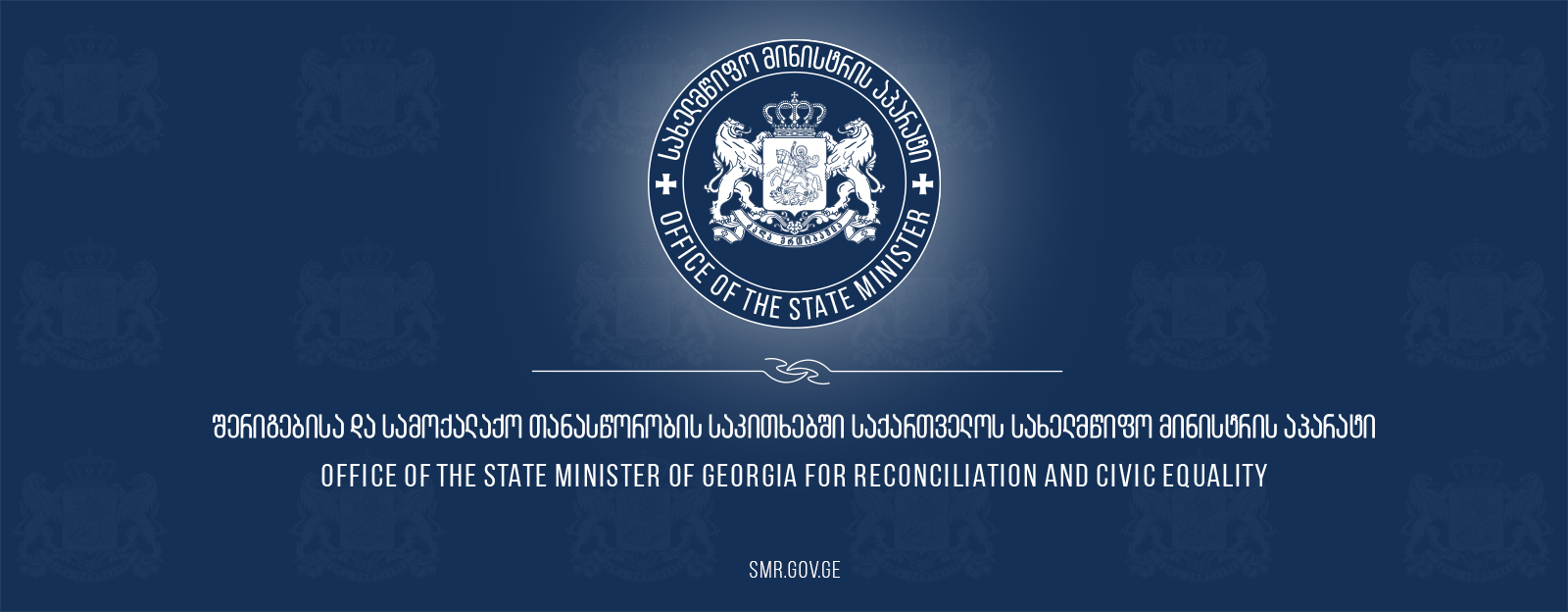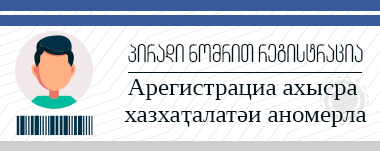- საჯარო ინფორმაცია
- სტრატეგიული დოკუმენტები
- ნოტიფიკაცია საქართველოს ოკუპირებულ ტერიტორიებზე გადაუდებელი ჰუმანიტარული დახმარების წარმართვისათვის
- ნოტიფიკაცია ოკუპირებულ ტერიტორიებზე მთავრობათაშორისი ორგანიზაციების საქმიანობისთვის
- ნოტიფიკაცია ოკუპირებულ ტერიტორიებზე არასამეწარმეო საქმიანობის განხორციელებისათვის
- ნოტიფიკაცია ოკუპირებულ ტერიტორიებზე შესვლის თაობაზე
- ჟენევის საერთაშორისო მოლაპარაკებები
- ინციდენტების პრევენციისა და მათზე რეაგირების მექანიზმი (IPRM)
23rd round of Geneva Discussions

The participants of the Geneva Discussions took part, in their individual capacity, in the two Working Groups, the first focusing on security and stability in the Georgia’s occupied Abkhazia and Tskhinvali region, and the second on the issues related to the safe and dignified return of IDPs and refugees to the places of their original residence. The discussions were co-chaired by the representatives of the UN, the EU and the OSCE, and attended by the participants from Georgia, the Russian Federation and the United States. The Head of the Provisional Administration of the former South Ossetian Autonomous District, as well as the representatives of the Sokhumi and Tskhinvali proxy regimes also took part in the 23rd round of the Geneva Discussions.
The Head of the Georgian team reiterated once again the commitment of the new negotiating team to the Geneva International Discussions as the key format for the implementation of the 12 August 2008 ceasefire Agreement.
On 26 March, the Information Session was held on the "Role of Women in Conflict Resolution". The invited experts familiarized the participants with the international political and legal framework ensuring women’s full, equal and effective participation at all stages of peace processes and contributing to strengthening their role in peace and security.
In the framework of the Working Group I of the discussions, the participants addressed one of the central items of the agenda pertaining to the non-use of force. The experts’ group, created at the 21st round, has solicited the reasoning from the co-Chairs regarding the consolidated text of the draft Statement by the participants of the Geneva International Discussions on non-use of force, revised by the co-Chairs to accommodate the differing views expressed during the previous drafting sessions. The experts agreed to exchange their views and opinions regarding the text, without engaging in drafting at this stage. The discussions showed that the divergence in principled positions remains unchanged. The participants agreed to engage in the drafting of the document circulated by the co-Chairs at the next round.
The Georgian participants have stressed once again that this Statement can only be issued after the Russian side reciprocates the Georgia’s unilateral legally-binding non-use of force pledge made in 2010 and recently reiterated and supported by the Parliament of Georgia. Georgia has once again called upon Russia to fulfill its outstanding obligation.
Within the Working Group I, the participants have also discussed the security situation on the ground. Georgia has raised its concern over the recent intensification of the so-called "borderisation" process along the occupation line of the Tskhinvali region in the villages Tamarasheni-Dvani, Atotsi, Didi Khurvaleti and Gugutiantkari. The Georgian side emphasized the necessity of ensuring the access of the EUMM to both regions that will ensure the full implementation of its mandate in Georgia. Georgia has also raised concern over the continued obstruction of the Gali Incident Prevention and Response Mechanism (IPRM), and stressed the importance of its resumption in full composition and without preconditions. Within the Working Group I, the participants from Georgia have once again stressed the necessity to create valid and functional international security arrangements.
In the Working Group II, the Georgian participants underlined the necessity to address the concrete concerns of the conflict-affected population and provide practical solutions to tangible humanitarian and human rights issues. Georgia expressed its particular concern over the imposition of severe restrictions on the freedom of movement that affects everyday life of people residing within and in the vicinity of the occupied regions, in particular, their rights to education, access to healthcare, and other social and economic rights. The participants from Georgia stressed the responsibility Russia bears for the violation of these fundamental human rights. The Georgian side has expressed their readiness to actively engage in the substantive dialogue of the specific aspects from the catalogue presented by the co-Chairs at the 22nd round pertaining to the Best Practices on Freedom of Movement. As the first step to provide for progressive implementation of the freedom of movement in a non-political manner based on the principles of transparency and predictability, Georgia confirmed its support for the principles and modalities presented by the UNHCR for facilitating interaction between the divided communities through organizing humanitarian visits.
The 24th round of the Geneva International Discussions will be held on 25-26 June 2013.













